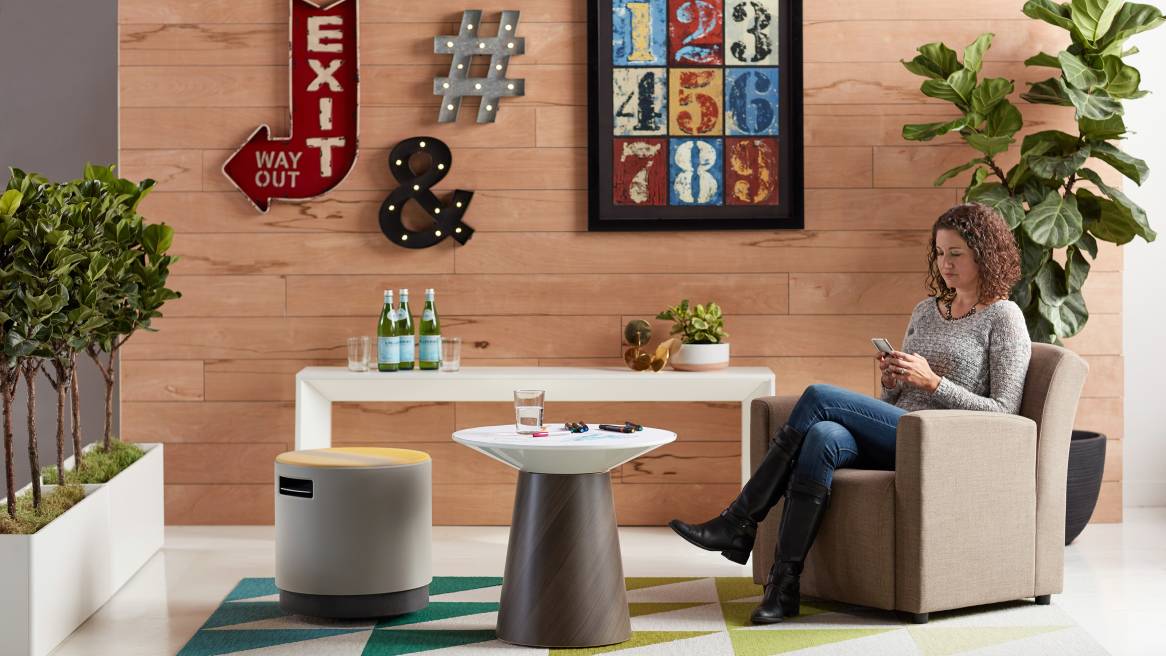Designtex President: Four Materials Trends in 2017
Designtex president Susan Lyons looks ahead to the rest of 2017, revealing which trends she sees sticking around at work.
As president of Designtex for the last five years, Susan Lyons leads a team of innovators known for a rigorous and dedicated approach to research and development of textiles, wallcovering and other applied materials with reduced environmental impact. Designtex, a Steelcase company, is the leading company in the design and manufacturing of applied materials for the built environment with an evolving catalog.
360 recently sat down with Susan to look ahead to 2017. In part, Susan’s job requires her to stay plugged into fashion, art and culture. We asked her what trends will lead the way this year in our workplace materials.
1.
Hospitality at Work
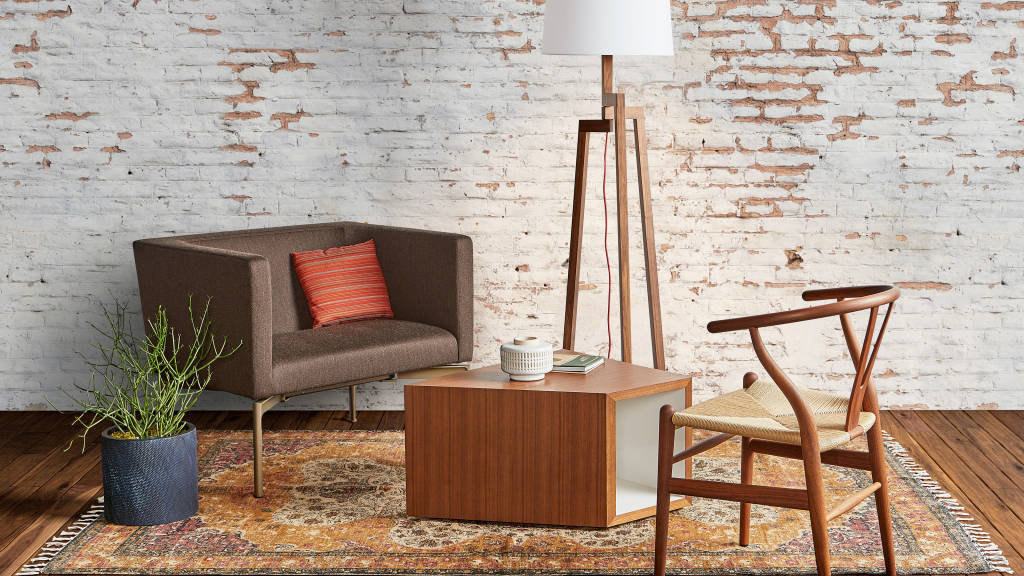
According to Susan, there’s a powerful movement going on in the workplace. A shift is happening as people look to bring a residential look and feel into work with the added commercial performance specifications needed for work environments. Designtex has always been involved in the hospitality side of business making this latest shift a very natural progression for the group. Susan says their larger business clients are now looking for an experience that feels more like what you find in hospitality — softer materials allowing people to be more comfortable at work.
“It’s becoming a huge conversation across the board,” Susan says. “It may be an antidote to technology and elements of it remind me of the 1970s — going back to nature.”
But, she says there are still differences in play as people find the best fit for their organization’s culture. Hospitality can bring in bling — sparkle and shine. That’s not a fit for everyone. Others are searching for “Hygge,” (pronounced “hoo-ga”). Hygge is the Danish word for creating a warm atmosphere and enjoying the good things in life with good people. The idea of handmade materials, soft candle light and tactile experiences are part of a Hygge atmosphere.
2.
A Narrative Approach
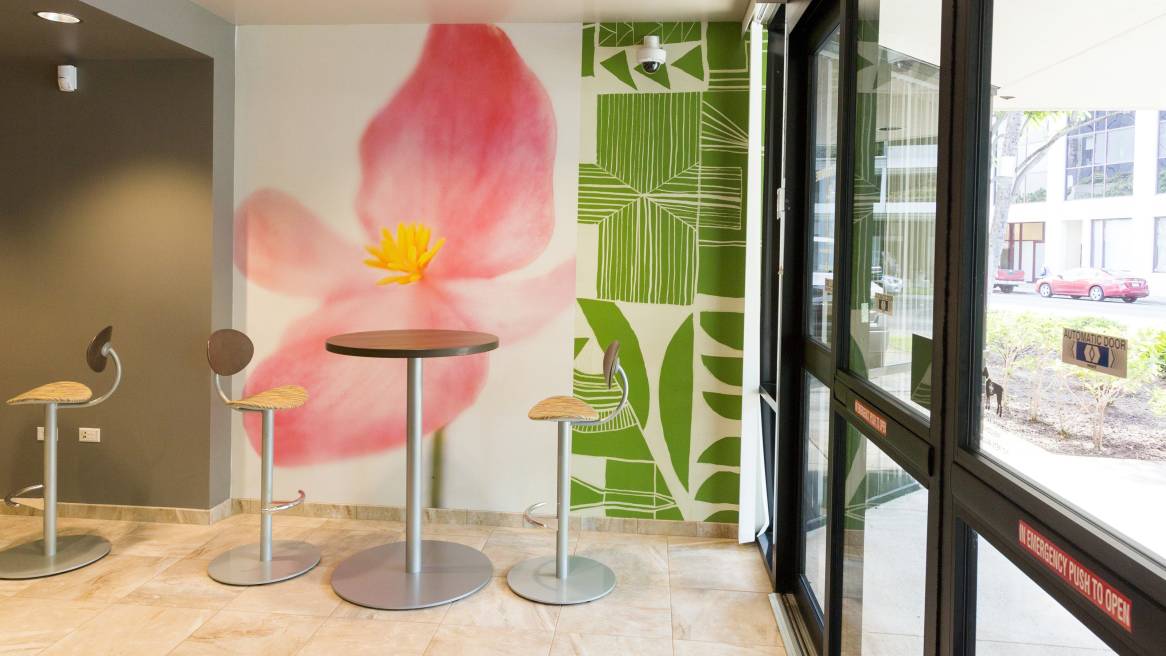
Because of the notion that work can happen anywhere and everywhere, Susan says people are looking at different kinds of experiences and material choices in the workplace. People are using materials to tell their company’s story. It’s a narrative approach to branding that helps people working in an organization feel a sense of employee connection and belonging.
“Clients are using spaces to tell more of a story about what their ethos is and what they are about in a more nuanced way. It’s about visual storytelling,” Susan says.
Recently, Designtex partnered with a large organization looking to connect with the local landscape at its workplace in Hawaii. The end result uses photography of regionally specific botanicals and a pattern tying into traditional Hawaiian kapa cloth. The wallcoverings help people who work there tell visitors the story of the myth behind Hawaii’s origin. It’s a way to connect the workplace to the local culture.
3.
Biophilia
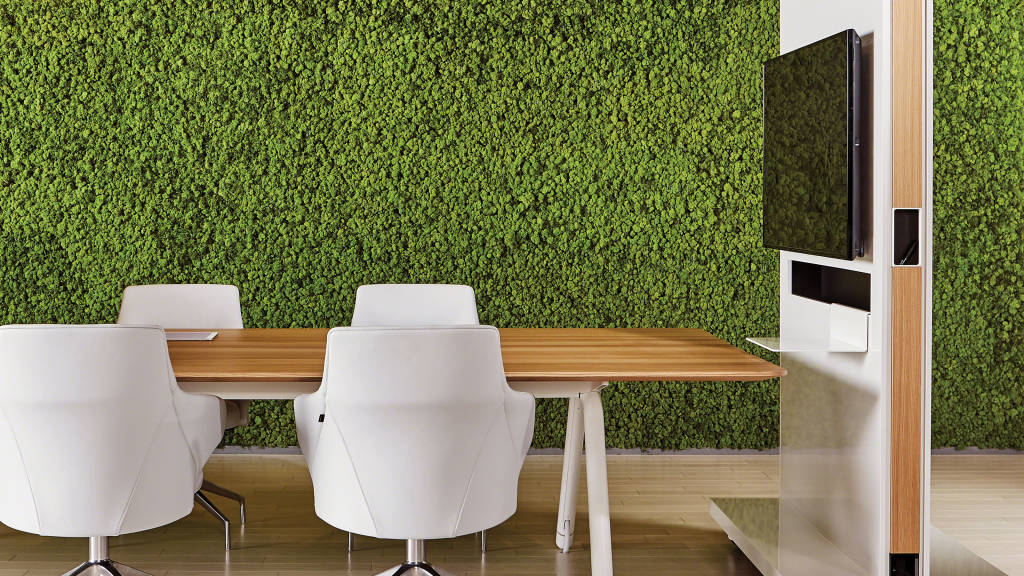
The Hawaiian wallcoverings are illustrative of both the narrative approach to materiality as well as biophilia. There’s a growing interest in biophilia in the workplace — a theory that humans have an innate tendency to seek connections with nature and other forms of life. Susan says biophilia has already been very prevalent in healthcare, but now she’s seeing it cross into other markets.
The idea that there is a bond between people and other living systems isn’t new, however, it’s a design trend in the workplace that continues to gain strength. There’s research supporting a natural feeling that biological elements like plants can help people feel and think better. Land Lease, an international property and infrastructure group headquartered in London, installed more than 4,000 plants, that’s about eight plants for each person. The plants help decrease toxins, balance humidity and improve employee wellbeing. Today’s version of biophilia isn’t just about bringing in plants. Biophilia is being incorporated into prints and materials and making its way onto walls, floors and furniture in the workplace.
4.
Bespoke
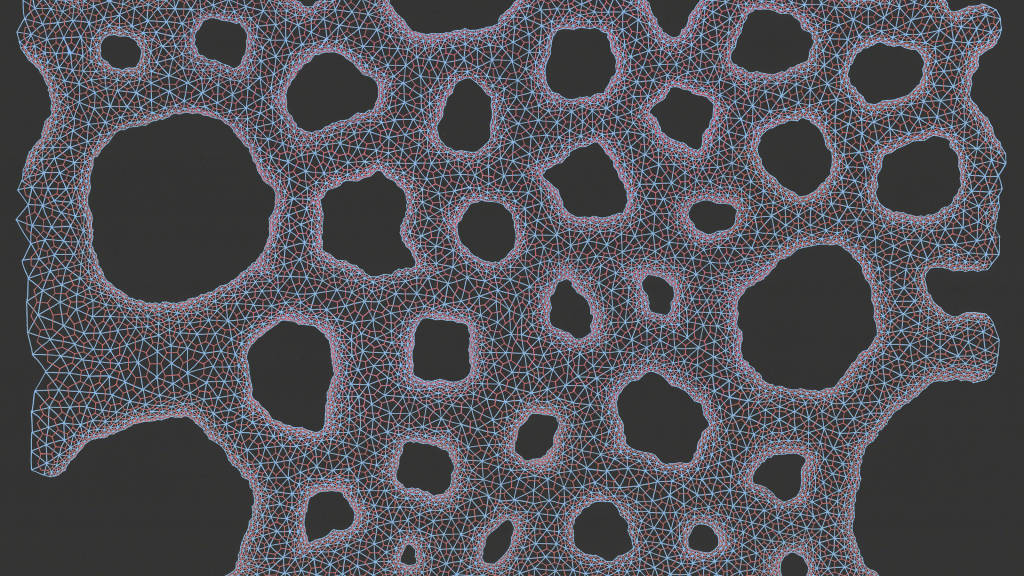
As more and more people reject corporate uniformity, there’s a strong desire for personalization and customization in the workplace. People want to feel like they can put their mark on something. Susan and her team at Designtex is finding ways to support this search for authenticity at work.
The Designtex Made to Measure program, for example, is an innovative collection from the world’s leading artists, illustrators, photographers and designers. It’s used to create customizable wallcoverings for spaces looking to make a statement. Designtex Bespoke takes the custom approach a step further when only a one-of-a-kind solution will do. It merges an organization’s ideas and visual concepts with design development, image sourcing, color management and printing expertise to create an inspiring and custom tailored installation for the workplace.
 As president of Designtex for the last five years, Susan Lyons leads a team of innovators known for a rigorous and dedicated approach to research and development of textiles, wallcovering and other applied materials with reduced environmental impact. Designtex, a Steelcase company, is the leading company in the design and manufacturing of applied materials for the built environment with an evolving catalog.
As president of Designtex for the last five years, Susan Lyons leads a team of innovators known for a rigorous and dedicated approach to research and development of textiles, wallcovering and other applied materials with reduced environmental impact. Designtex, a Steelcase company, is the leading company in the design and manufacturing of applied materials for the built environment with an evolving catalog.
You may also like
The Office Renaissance: A Rebirth. And Why It Matters.
Participate: The Culture of Customization
Inspiring Spaces Reinvigorate the Office
6 Workplace Updates for the Office Renaissance

